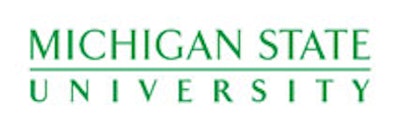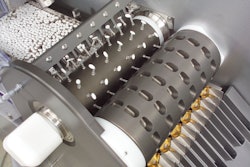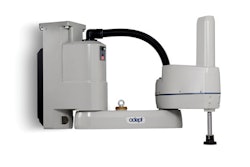That’s why the National Food Safety and Toxicology Center at Michigan State University has launched an initiative called Packaging for Food and Product Protection, or P-FAPP.
Those who traffic in counterfeit food products are practicing economic food fraud, and economic food fraud issues, historically at least, haven’t received the same kind of attention as food safety or food defense issues. A few definitions may help here:
• Food safety involves unintentional contamination, like the problems encountered with spinach last year and tomatoes this year.
• Food defense concerns itself with intentional contamination and intent to harm, including acts of bioterrorism.
Economic food fraud falls somewhere between food safety and food defense. The traditional microbiological or contamination food-safety risk models do not directly apply since economic food fraud is intentional. At the same time, the traditional food-defense risk models don’t directly apply either, because economic food fraud is a public health threat through negligence rather than intent. Remember, those who practice economic food fraud care only about profit; intent to harm is not one of their drivers.
At MSU we’ve long been focused on an integrated approach to food safety. After 9/11, issues of bioterrorism and food defense began to receive considerably more attention, which was only natural. Now with our P-FAPP Initiative, we bring a concentrated focus specifically on economic food fraud.
Early research emerging from P-FAPP suggests that a truly interdisciplinary approach is required. That’s because the forces driving economic food fraud are rooted not just in food safety and packaging but also in areas such as criminal justice, supply chain management, consumer behavior, risk management, intellectual property rights law, international trade relations, and even political science and social anthropology of the cultures and economies where the perpetrators of economic food fraud hatch their schemes.
Food companies building a strategy to combat economic food fraud should view packaging as the very cornerstone of that strategy. A variety of existing and new technologies can help. But as we found in our research, efficient and effective decisions come only if you dig deeper and understand the nature of the threat so that you can identify which solutions fit your particular product and supply chain. Equally fundamental is a clear understanding that economic food fraud is related to, but explicitly different from, food safety and food defense issues.
At MSU, John Spink ([email protected]), MS, CPP, is an adjunct faculty instructor and the director of the P-FAPP initiative within MSU’s National Food Safety and Toxicology Center. Bruce Harte ([email protected]), PhD, is an MSU professor and past director of the MSU School of Packaging.


























